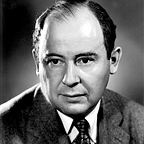Superintelligence
The Power of Sleep in Learning: Mind-Blowing Science
Many people, sadly, haven’t unlocked this potential their whole lives
W e all know sleep is important for (mental) health, but what do the numbers say?
According to the book:
Sleeping well can boost your learning with 20 to 40% in comparison to those who are sleep-deprived.
The problem, however, is that it’s hard for long-term sleep-deprived people to know they are sleep-deprived. However, according to the book, just 1 hour of less sleep for 10 nights is sufficient to make your performance equivalent to someone who is drunk. This includes driving, learning, reaction time, and so on.
One hour of less sleep every day, sadly, is a reality for many people and especially students.
So how does sleep enhance learning?
